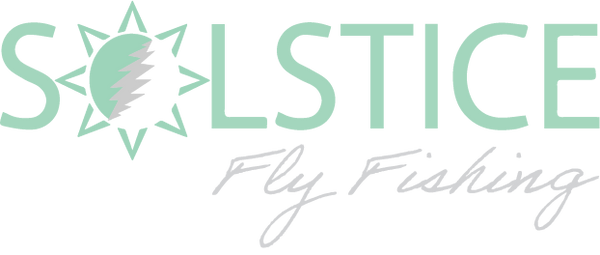Protecting Cape Cod’s Fisheries: What Fly Anglers Can Do
Cape Cod is home to some of the most diverse and productive fisheries on the East Coast. Migrating striped bass, false albacore, bonito, tuna, humpback whales, porpoises, you name it, it will pass along Cape Cod's shoreline. As fly anglers, we have a unique opportunity to enjoy these waters while also playing a role in their conservation. By adopting responsible fishing practices and mindsets, we can help contribute to better opportunity on the water for future generations.
As it stands, the striped bass population has had very poor spawning the last half decade or more. Today, we're not here to be negative. This just highlights the importance of doing the "small things" each day on the water. Here at Solstice, we believe that a guides job is to not only help people catch fish but, to inform guests about what they are seeing on the water and to enable them to experience moments of connection with that ecosystem. Read below to learn how we try to leave as little trace as possible on the water this season.
Respect the Habitat
Cape Cod’s estuaries, salt marshes, and tidal flats are delicate ecosystems that provide essential nursery habitats for many fish species. Avoid trampling sensitive vegetation, wading in spawning areas, or disturbing wildlife. Keeping your footprint minimal helps maintain the balance of these vital ecosystems. A good rule of thumb is to stay on the sand. Many times anglers are seen walking all over the sensitive marsh grass.
Minimize Your Environmental Impact (Sustainable Tactics)
Uniquely enough, this is where finding a sustainable tactic in fly fishing is a great way to minimize environemental impact. An example at Solstice Fly Fishing is, we think sight fishing is a highly sustainable way of fishing. It is sporting, it takes skill, and it takes good weather conditions. All of these variables put some of the odds in the favor of the fish. Its exactly the mentality of the fabled chalk stream fly fishing clubs in the United Kingdom, 'Dry fly upstream only'. This is 100% for sustainability reasons. Sometimes there's bugs and sometimes not, don't force it. Adopting this to the flats and other species is a great way to make a small difference.
Litter, discarded fishing line, and plastic waste can be detrimental to marine life. Always pack out what you bring in and participate in local beach and waterway cleanups when possible. Consider using biodegradable or recycled materials for fly tying. Using reusable water bottles is an easy way to reduce plastic use. Also, purchasing a Monomaster is an awesome way to secure non-usable tippet and line clippings.
Practice Catch and Release
One of the simplest yet most impactful ways to protect fish populations is by practicing catch and release. Use barbless hooks to minimize damage, handle fish with wet hands to prevent removing their protective slime, and revive them properly before release. If you need to take a photo, keep the fish in the water as much as possible.

Use Sustainable Gear and Techniques
Fly fishing is already a low-impact method of angling, but using single, barbless hooks and avoiding bait that can be swallowed deeply helps prevent injury to fish. Additionally, using circle hooks when fishing with baitfish patterns can reduce deep hooking and increase survival rates.
Respect Seasonal Closures and Regulations
Fisheries management agencies establish seasonal closures, size limits (Currently Striped bass is 28" to less than 31"), and bag limits to protect fish stocks during critical spawning and migration periods. Staying informed and following these regulations ensures the sustainability of the fishery. Check the latest Massachusetts Division of Marine Fisheries guidelines before heading out.
Advocate for Conservation Efforts
Support organizations dedicated to the preservation of Cape Cod’s marine ecosystems, such as the American Saltwater Guides Association (ASGA), Trout Unlimited, or local watershed protection groups. Engaging in conservation advocacy, whether by donating, volunteering, or spreading awareness, can make a significant difference.
American Saltwater Guides Association is a top organization standing up for our saltwater species on the East Coast. They have a boundless passion for protecting our fisheries and relaying message from the public to the organizations in charge.
Educate and Inspire Others

Sharing your knowledge and passion for responsible fly fishing with others—whether through guiding, blogging, or social media—encourages a culture of conservation. The more anglers who adopt sustainable practices, the greater the collective impact.
Final Thoughts
Protecting Cape Cod’s fisheries is a shared responsibility among all anglers. The current Striped Bass population is in need of our help to mitigate losses and speak up for change in regulations. By embracing conservation-minded practices, respecting regulations, and spreading awareness, we can help ensure that these incredible waters remain productive and vibrant for years to come. Every small action contributes to a healthier fishery—let’s do our part to keep Cape Cod a premier fly fishing destination for future generations.

